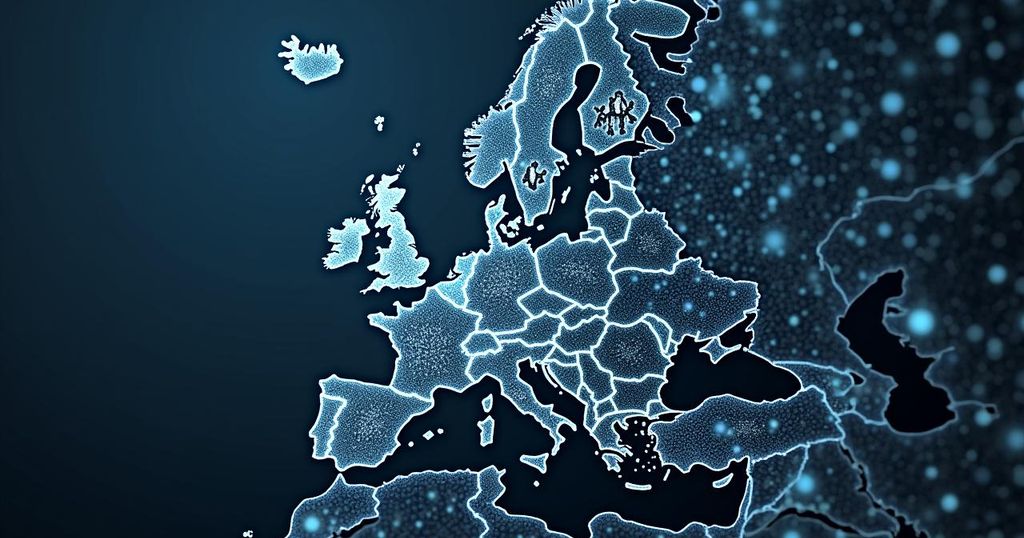AI is reshaping Europe, with 75% of workers engaging with it. While it creates opportunities, it raises concerns about job displacement and ethical usage. Artists and experts voice the need for cautious application, highlighting both potential and risks associated with AI.
Artificial Intelligence (AI) is a hotly debated topic in Europe, with strong supporters and critics alike. Nearly 75% of European workers have already encountered AI, which is revolutionizing fields like virtual reality and autonomous technology. Yet, concerns loom over its implications in education, the workforce, and creative industries. Artist Renate Pittroff highlights the dual nature of AI, stating, “AI is not only terrifying; it can be amazing yet extremely harmful. It’s crucial for people to be aware of what they do with AI.” This sentiment is echoed in research at Vienna’s TU Wien, where AI helps create robots for life-saving missions, but also raises worries about job displacement. Professor Hannes Kaufmann emphasizes the need for responsible use of AI: “We must question its utility and application in our work.” In Tallinn, a startup utilizes AI chatbots to streamline business operations, demonstrating AI’s role in generating new jobs—currently employing 100 people. However, rapid advancements also foster a challenging environment. Marge Žordania, head of medical translations, points out that increased translation speed leads to lower pay and heightened dissatisfaction among workers. A recent survey shows that two-thirds of respondents fear job loss due to AI expansion in Europe. The future of AI in the workplace is uncertain, impacting both companies and employees as Europe navigates this technological frontier.
The rise of AI in Europe is reshaping how people work and interact with technology. With its applications ranging from enhancing labor productivity to creating innovative tools, AI poses significant challenges and opportunities. As AI becomes more integrated into various sectors, debates surrounding its ethical use, job displacement risks, and potential benefits are intensifying.
AI’s impact in Europe is profound, influencing sectors from education to business operations. While it fosters innovation and job creation, it also triggers concerns over job security and the evolving nature of work. Engaging with AI responsibly and ensuring that workers adapt to these changes are essential for a balanced future.
Original Source: fr.euronews.com

Leave a Reply